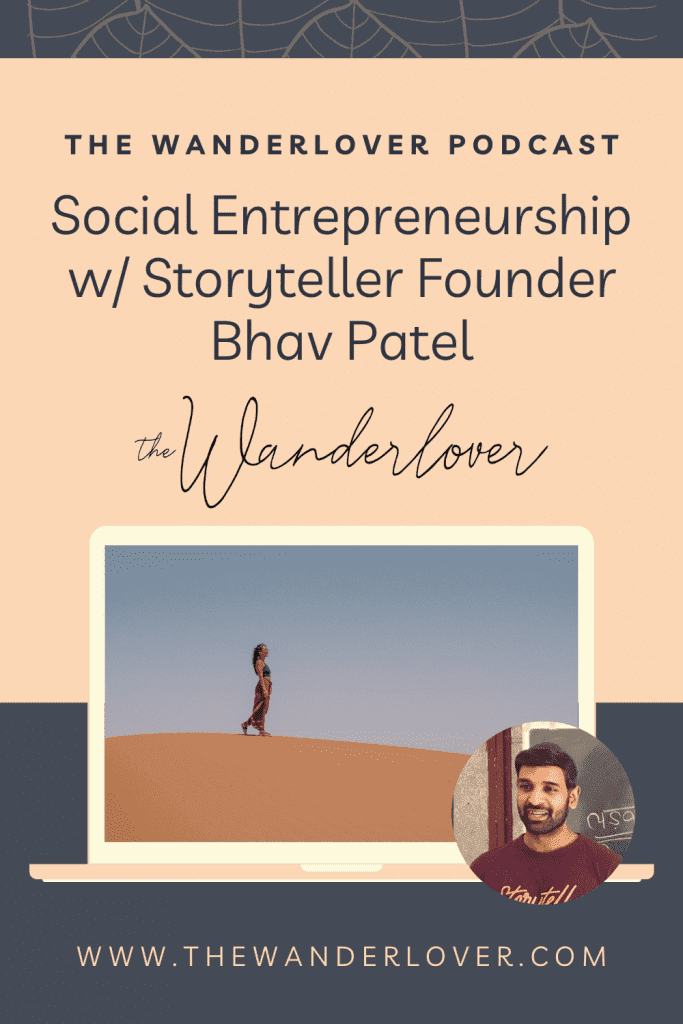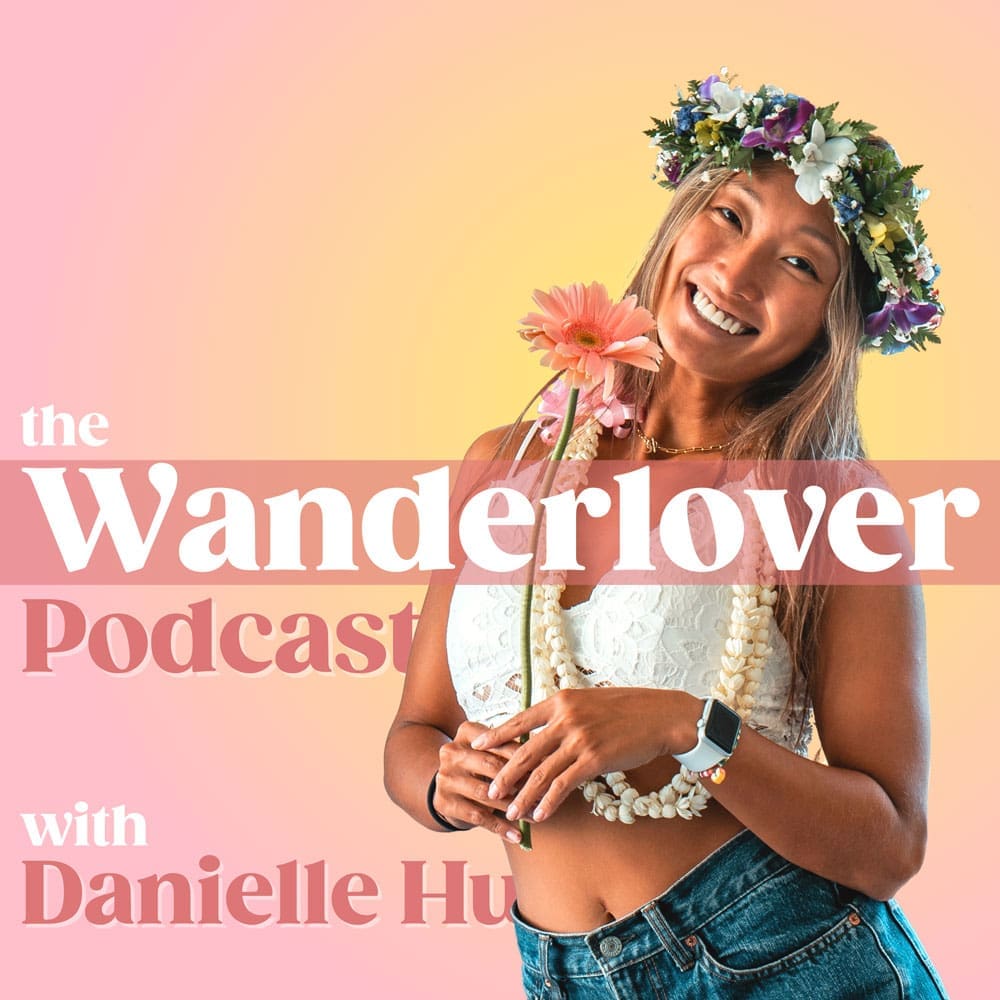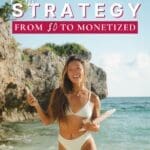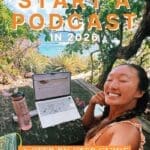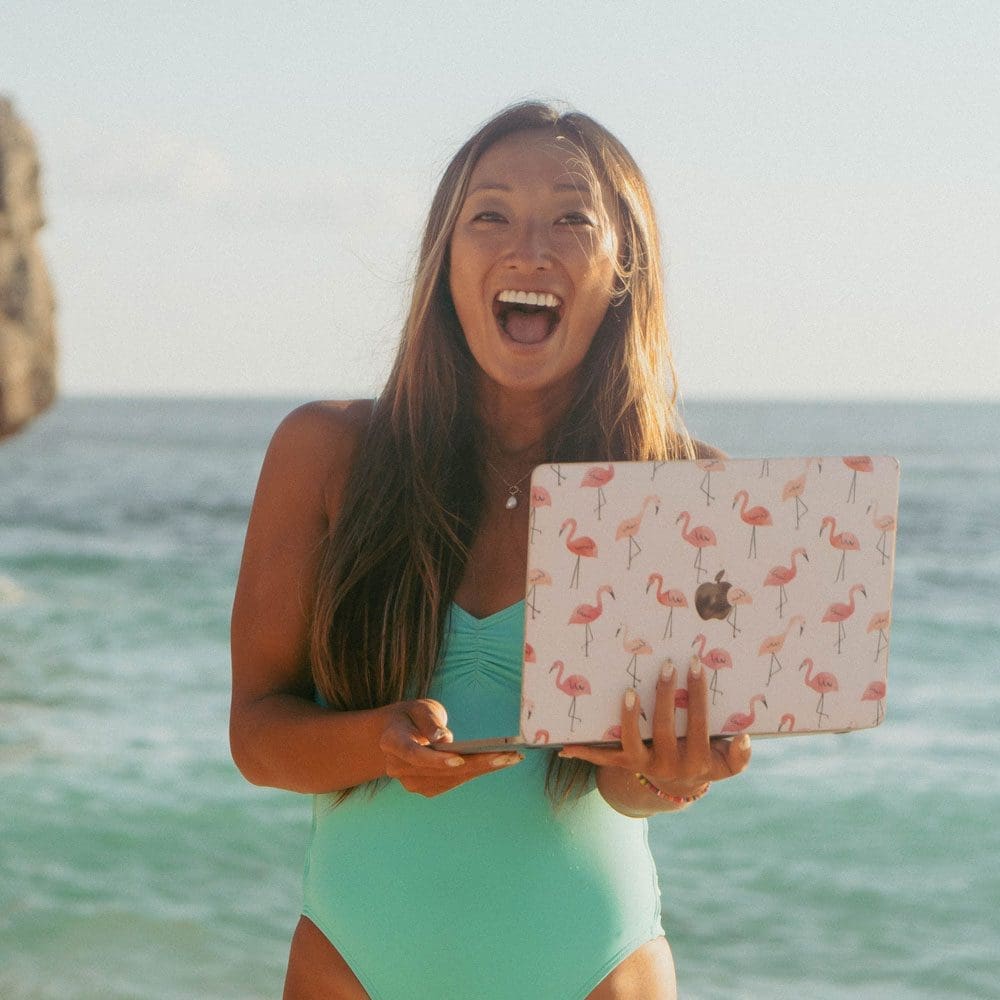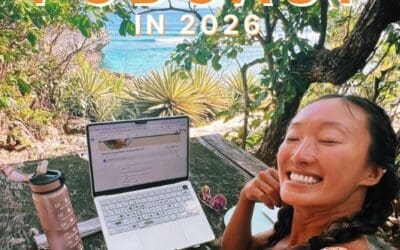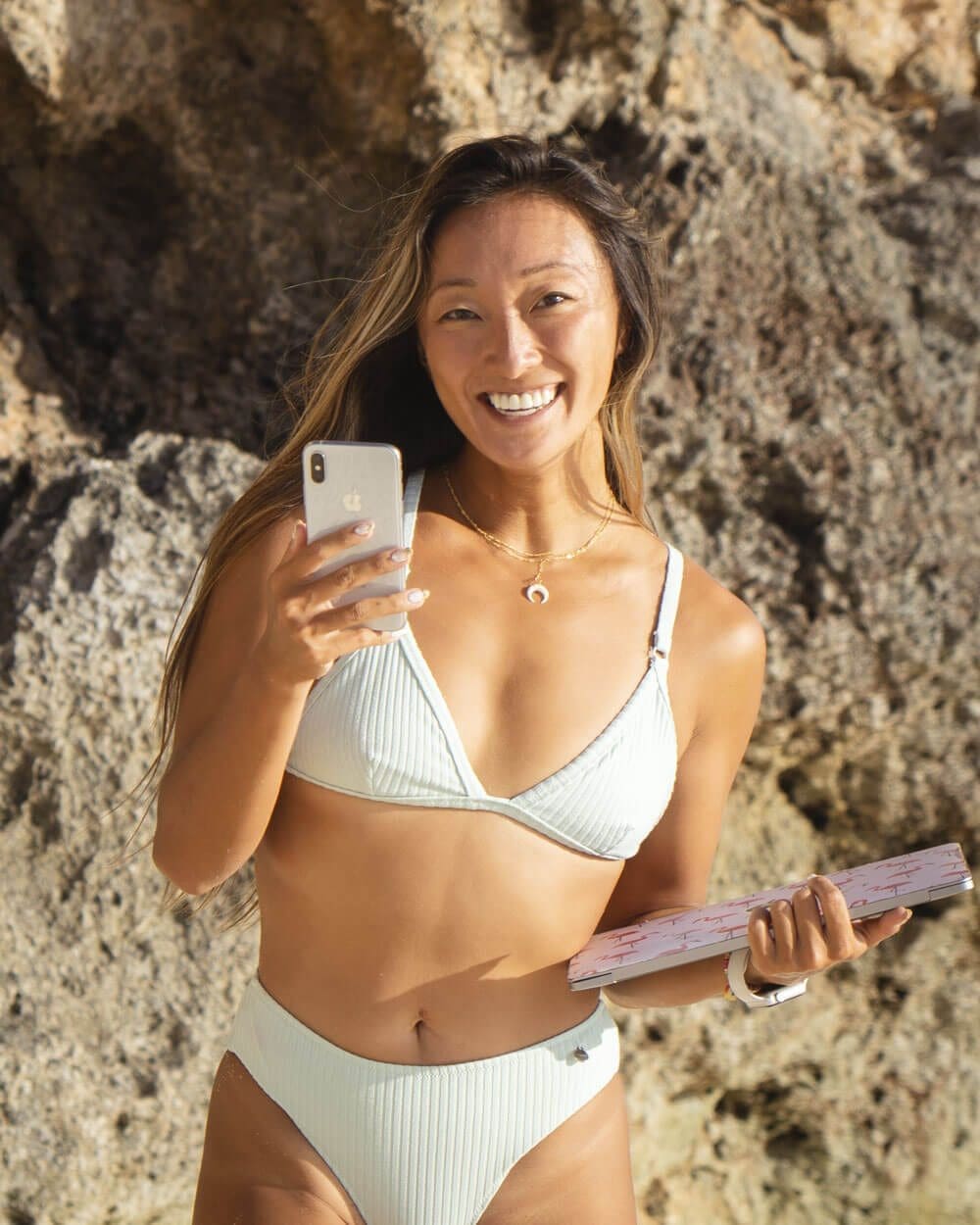In this episode, we talk about social entrepreneurship (01:13), the companies that Bhav has worked with to help make a difference with his business (12:35), how he built his online presence (17:33), and the struggles he has faced (25:27).
Quick Links
✧ Join The Wanderlover Coaching Group
✧ Download Your FREE 0 to $100K Game Plan
Audio Transcript
Hi guys! Welcome back to The Wanderlover Podcast. I’m your host, Danielle Hu, and this week we have special guests. Bhav Patel, founder of Storyteller. He is a lawyer turned social entrepreneur who donates 10% of his travel accessory sales to fund educational projects for those less fortunate around the world.
(52s):
Welcome to the show, Bhav. Thanks for having me, Danielle. I’m grateful for the opportunity, So happy to have you here. So I’m loving how your brand embodies social entrepreneurship and to start, can you just please define what social entrepreneurship is for the listeners who may not be? Yeah, sure. So social entrepreneurship is a private business to have a model where you give a percent of your profits or a product that gives back to a purpose. So essentially your business is centered around a purpose, and that’s the key there. Your business fits around that as a whole.
(1m 33s):
Awesome. And what inspired you to start this company and adopt a model with a social cause? Sure. So my background is in, is in law. So I actually started off as a lawyer, but it was also also very involved in volunteering with charities, from things like Korea workshop days to pro bono legal advice clinic. So giving back has always been an important part of my life. And I think the turning point came while I was traveling. So whilst traveling allowed me to witness incredible sites, it also shows the problems occurring around the world. And I think when I was going around the world, especially places like Peru and India, I really saw the effects of this.
(2m 15s):
And I saw so many children who didn’t have access to the quality education and so many adults, which were, who were illiterate. And for me, that blew my mind because I saw this and I thought, wow, in, in, in a place that we know in a world that we live in, now, this is still going on. And the problem is, you know, real, I can see it here and it wasn’t just the one occasion. It was a repeat cycle. And you can see that, you know, this was continuing through generational issues. So it was something that was continuing through through their families. And that’s what I guess made me want to give back to education. So just to go back and give something where as a business, we were creating products, but also I made a conscious, conscious decision that an integral part of the brand would be to help fund and run educational workshops for both children and adults.
(3m 7s):
So I’m born in the UK, but my parents are from India originally. I can totally relate. Like every time I go back to China and just see the disconnect and it’s almost humbling to be like, if my parents had stayed there, my reality and my life would be so, so different than growing up, like where we did. Yeah, absolutely. Absolutely. And I think when you, when you, when maybe when you go there, when you’re younger, you get for a bit used to it. I think you kind of see that last time you think we’ll be suggest them and they’re happy, but then the more, when you, when you go about these spaces and you see what you have and how your education is and what you easily access so easily even basics like internet now, you know, it’s still accessible, but some places, you know, you can’t access that and things like that, you see more of see, see the problem bigger.
(3m 56s):
And especially when you traveled to different countries, you see that this isn’t just one particular location of one area of the world. It’s in many different places. Yeah. And I feel like, unless you travel to those places, you only see what’s on TV and it’s like almost distant, but when you’re face to face with those families, with those people, it really is like, Oh my God, how is this happening right in front of me. So when did you start this company? Yeah. So I think I had an idea of, I wanted to create a company, but I didn’t know what a few years back. So I’d say about 2017, like practices and lawyer for a number of years by that point.
(4m 36s):
But I always have always had a huge passion for business. So even within that role, I led various business development campaigns, which allowed me to work with global brands. I really started to enjoy the start of the job and certainly the goalpost side to move for me. I started to enjoy the business side of things more than the legal. And although there were opportunities to grow in the legal field, I decided that instead I wanted to really go after something that I was really passionate about and create my own company. And it was probably kind of coincided with a time when I started to travel. And, you know, I’m sure from your experiences, but I think travel really opens up and it broadens your, your mind so much.
(5m 17s):
And I think for me, travel is being one of the biggest teaches outside the classroom. For me, it has not only helped me develop better communication and skills and a fearless mindset as well as a whole. But it also allowed me to think about outside, outside of everything else going on in nine to five jobs and on the world that I live in here, what do I really enjoy? And when I’m traveling, why do I enjoy it so much? And I think that’s when it came across this time, freedom and financial freedom together is, is so important to be able to kind of enjoy yourself and look outside of your nine to five job and create something which you can then enjoy what you want to enjoy and do things in your own terms For sure.
(6m 1s):
And once you have a taste of that, it’s really hard to go back to, or I can. Absolutely. Absolutely. I know, I know, I know your experience of this as well. So I think, you know, we could post agree that from, I think from a distance, it looks great and, but once you’ve achieved it, it’s not, it’s not as great as it, as you kind of think when you’re actually in the process and it, and it just feels like you’re in a bit of a system where you’re doing something and you’re living your life by somebody else’s terms. So even if you want to travel, you’ve got a three, four week holiday period, and that’s kind of like, you’re back to reality now. Definitely. And I guess one thing that I know a lot of listeners struggle with is when they are in that position and they know they want to start something they’re unsure what to pursue or how to pursue because the education system teaches you how to essentially land this job.
(6m 50s):
And then after if you have the time or the freedom and the financial means to start your own company, they’re unsure how to go about doing that. So how did you, I guess, come up with this idea, did you bootstrap it? How did you find funding for it? Yeah, so I think it’s difficult first of all, to just to create a company from scratch. But I think there’s an idea of, I went to create something by, I’m not sure what, so I, I personally took the two things I was most passionate about, and for me I’d combine them both and that was my passion for travel and then giving back to, to others. So I brought them together to create storyteller for me. I think it’s, it’s also quite hard for someone to think, okay, here’s a company.
(7m 33s):
And now what did this company do and how do we make it profitable? Because you know, for me as well, like I really wanted to make a difference in the world. But, you know, I came across a podcast at this at that particular time when I was in the central process and it was Lewis house, the school of greatness. And I listened to an interview at that time with Timothy Sykes and something really stuck with me and it was great to volunteer, but if you really want to make an impact, you have to think bigger and make a bigger impact. So it’s only when you have a company which is doing financially well, but you can actually give back on a global scale. And I think that really stuck with him because I think before I was a bit like we can volunteer as a company, we can do great things, but actually if you want to make longevity and long-term commitments and make actually more of a long-term, I guess, more of a, more of an impact rather than a short term, band-aid, you’ve got to kind of have that financial resource.
(8m 30s):
And I think that’s, that’s what led me to look at companies like Toms. Patagonia will be parka, who, who basically took social entrepreneurship and, and started this trend of we’re going to kind of create something where a product is going to give back to a, to a purpose. So I think for me that was more of a looking at what I wanted to achieve, taking the things I was most passionate about, putting them together and then thinking about how, how things come work as a whole. Awesome. And did you, like, how did you find suppliers? I took a look at your website and you sell travel accessories for physical products. I feel like a lot of people have an idea as well, and they’re unsure how to create it as your models and how you design them.
(9m 17s):
Can you give a bit of background of how you went about that? Yeah, sure. So from a legal background, I can tell you straight away that my creativity is evil. I think, I think everything else has been creativity I had, which was quite good. But I think with this, it was more of a, I had an idea because I think as, as people travel the world, you, you have an understanding of you come back with some sort of souvenir. So I’d probably say number one, souvenir, it’s probably a key chain or a tearing of some soul. And I think that that kind of led me to, this is something which people purchase as you buy it, but you don’t really use it necessarily. So that, that kind of came to mind.
(9m 58s):
And then in terms of how to create the product and make sure it solves the problem, it was more about how can I make this product look effectively good. And then also work with somebody here in the UK who will help me manage it. And I think that was my probably first hurdle, because I think as most people know, when you’re, when you’re looking at products, you think if I go abroad, I’ll probably get this product cheaper. I can get it made in a cheaper rate. And I think that’s great. But I think when you look into it in detail, sometimes when you in the planning stage and you want to prepare something it’s so difficult to try and communicate and have this timeline of, okay, I’m going to order this sample and wait three months and then yeah.
(10m 41s):
And it’s arrived. And I was like, this isn’t what I was looking for. So I think it’s really useful to have someone, especially when you’re designing a product, start to have someone who’s local, who’s worked in the industry. And I think what helps me most was explaining my idea, sketching it out and working with the manufacturer because they will tell you this will work, but this will definitely not work. There’s a lot of ideas maybe I had at the outset, which might, might dilute. They might look really nice, but actually as a physical product, they weren’t long lasting. So they weren’t going to be durable. So I think getting that input from a manufacturer and someone you can meet and communicate with is so important. Definitely. So are all your teachings manufactured In the UK?
(11m 23s):
Yeah. So every costume is manufacturing the can. And what I really wanted to do was give back to my local, where I live and where I’ve been born and raised. Everything’s manufactured very local to me. So I can just drive down to the factory and take a look around whenever I need to Convenient. Yeah. One other thing, I guess, as well with, I went to, to make sure that the company and the factory you’re manufacturing, it does have really good ethical and sustainable policies inside their international Yukon. We see the people, you can see the actual working conditions. And I think for me, you hear these horror stories about how this huge factories and people have been paid, you know, very small amounts, but not of work.
(12m 5s):
And I think I didn’t want the brand that I’ve just created to be having an ethical giving, but then not follow up with this sustainable element as well. So I wanted to make sure that was clear. So here I can see what’s going on. It’s a very small family run business, which is brilliant. And I can see all the policies and everything in place, which is super important, I guess. And especially in the day and age now where sustainability and, and being an ethical brand as a whole is just something that every brand I believe should do. Yeah. And I’m really like, I really admire how you have it from the production and then post sale too. So it goes full circle. Yeah. Who have you donated it to and worked with in the past?
(12m 49s):
Sure. So when we first started off, we worked with charities such as room to read UNICEF and the barefoot college. So we worked with them on their partnership projects where we, our team traveled out to India and Nepal and we partnered with them on their project. So not only we’re funding the project, people also, we’re helping out by volunteering, which is from us. I think we get to see the impact. We get to also learn about how we can make things better, how we can do things better. And in terms of the workshops that we ran as well, we understood how best and effective to do them. And then after having this period of about two years where we did charity relationships, I think we learned so much around the journey that we thought let’s try and do a ruin store storyteller trip, which is brilliant because we planned it between our team partnered with local NGOs out in Nepal and took our projects, which we planned from here.
(13m 47s):
So everything from workshops for children, for adults, focusing on things that are going on in that country, which probably weren’t focused on too much. So things like recycling, things like the environment. So not just teaching them math, science, and things, basic subjects, but also thinking about the lifestyle they’re living, helping them understand about life skills. Because I think for me and for our team, I think we’d all agree that life skills that we learn at a later age are so important. And I wish there’s so many skills that I learned earlier in life. Absolutely. I mean, you know, you can, you can read these amazing self-development books later in life.
(14m 29s):
And I think, wow, if I had known how to negotiate, how to communicate in this way, this would have been incredible for me. I think trying to share that knowledge in a way where it’s understood for them, but in a basic manner where they’re learning new skills as well was important. So it was good to run those workshops ourselves in our way, and also have the funds which are from our products going directly to a cause with nobody in between. And I think it was just great to have that opportunity. How big is your team? Right? So this 7% moment, but when we volunteer abroad, there’s a whole host of us that go, I think people see as an opportunity to do good.
(15m 9s):
And I think travelers more than anybody else has seen the problems really resonate with the issues. So there’s always a great influx of people that want to join our trip. And it’s brilliant to see that people who understand the problem really want to help. So, you know, fingers crossed that we can carry on doing these, these trips as we go. Yeah, that sounds awesome. And I feel like you can bring about such an international group as well on those trips. I can imagine. Do you know around when you will host your next one or are you just waiting it out to see when international travel is open again? Yeah. So we hoping we are hoping for next year, but I think I’ve been a bit optimistic at the moment.
(15m 54s):
So we’re going to see how things are things probably with the next few months and then yeah. Hope given the next, we’ve got a few countries in mind. So as soon as things open up, we’ll start planning, I think Exciting. So what would you say has been your biggest accomplishment with storyteller so far? Sure. Oh, that’s a tough question. I think there’s been so many small wins along the journey that I think sometimes you don’t see until later on. And I think you just have a to-do list, then you continue to do lists. So a whole host of small wins along the journey, but I think two of the biggest ones were.
(16m 36s):
So I see, I think winning a product when the gift of the year in terms of 19, thank you so much. So it was nice to see, I think something that we designed and something which is handcrafted in the UK, when, when, when such a nice prize like, like that. And then last year, the following they’ll work in India, Nepal. We also went to social entrepreneurs of the year in the UK. So that was brilliant because I think everything that we’d worked on for the past two or three years, all the planning, all the workshops and all the impact we wanted to create, I think really came together. So I think those two awards really from a product perspective, but also from a social giving really helped us realize that slowly and surely things are coming together and we’re having this impact, which is great because we see the customers who are happy with their products, but we also see the amazing children, adults who are able to access quality education and, and people recognizing our work, which is brilliant.
(17m 33s):
We’ve been scaling. So since the launch, how have you been, I guess, reaching international consumers and building your online presence? Sure. I think when I first started off online, when you, and you just try and search different strategies and read, there’s so much content that can do. And I think with a lot of entrepreneurs, when you first start off, there’s so many avenues you can, you can, you can use to take your products or services to market. And I think it’s, it’s a personal business choice of which ones you think will be effective for you. For me, I think it was more of a online marketing social media strategy was very, very big.
(18m 20s):
I think it was about posting regularly on social media, also using advertisements on that as well to capture a crowd, but also then working with social travel influencers as well. I think my, one of my biggest, I think not obstacles, but I’d say learning was, I think when I first looked at social media and when I first started off with the business and looking at products, I thought, okay, this person has got X amount of followers. So that to me looks like X amount of reach. So if, if somebody has a hundred thousand followers, that to me is a hundred thousand potential customers. But then I think slowly and surely you learn that it’s not about the numbers with social media.
(19m 1s):
It’s very much about the engagement, the type of influencer they are, how they post, what they post. So I think there’s not some intricate details when it comes to online marketing and that’s one of the learnings I’ve had is really look at who you work with, especially with social media. Will I know you’re, you’re an absolute expert in this, for sure. So I’d love to hear your thoughts, but I think I learned that along the way that you’ve got to pick somebody who you’ve worked with, who really believes in your brand and the values of the brand. So not just the product, but fits, fits really well with the brand values. And that way I think they can talk about your product and brand, but it doesn’t seem that it’s a bit of a forced advertisement.
(19m 44s):
It’s very much five-year like this, and this is my real opinion. And it goes to an audience who really believe that person. I think it works well from all angles, but it’s very important to do that. And I think secondly is using different marketing structures, such as email newsletters and starting the storyteller community, that whole community presence of we can do good together was amazing for us. And I think as a brand it’s really helped customers come together and we support us from, from the start. That’s awesome. Yeah. And I really relate to the whole influencer marketing, like as an influencer with my own products.
(20m 24s):
And after working with brands, it’s so obvious what my audience resonates with and what they don’t. So I can see from like my end, how many sales I’m making and what I’m selling and what I’m promoting. So if they know like, and trust this product and my opinion on it, then I like, see how it’s impacted. So bringing it out together, like, yes, do Your due diligence on your influencers, on your advertising and just make sure the people who are seeing your product are interested and they are also willing to buy the absolutely. Absolutely. What you said then is perfect because sometimes it’s finding the right audience.
(21m 6s):
So you need to work out who is your actual target audience. If your product and service is of a certain type, then you need to make choice getting in front of your right audience. And not just the generic broad I’m opening up spots in my calendar for custom Instagram audit and social media strategy, deep dives, you guys know how powerful of a tool Instagram can be for your business. If used right? The wander lover, Instagram has been my main channel the past few years to help me land five star hotel collaborations, five figure clients and connect with thousands of creatives and companies around the world.
(21m 47s):
This is a 60 minute session that includes a, an Instagram audit. So a personalized one where we align your branding and messaging with your content. I look through every detail, be a 30 day content action plan to increase your impressions and income. See marketing ads, launch and scaling strategies to get you visible on social media, see a revamped, Instagram, bio, and profile that makes it crystal clear what you offer and why someone should follow you. And last but not least the exact content calendar that I personally use to make posting on all my socials, fun and sustainable.
(22m 27s):
This is going to be such a powerful hour. It’s going to really level up your Instagram game. You can book using the link in the podcast episode description, or go to the wander lover doc Com slash Instagram dash audit. I cannot wait to help you. So what has been your biggest failure in business? And this comes from the point of view that you didn’t start in entrepreneurship, you followed a law background. So in the beginning, you know, you didn’t have all the tools necessary, but you started anyway. Did you run into any roadblocks and what did you wish you may have done differently in the beginning?
(23m 13s):
Yeah, sure. Great question. Yeah, I think initially when I started off, I had a good set of skills, which I could transfer things like drafting documents and looking at business strategy as a whole was easier for me than other things. But I think if I was to take step back and start again, I would definitely have not taken that approach. I did. The first thing I did was draft a 15 page business plan without having an actual physical product without having any kind of financial revenue or any type of financial planning. It wasn’t all about, this is the strategy and this is my target audience.
(23m 53s):
And I think I spent so long perfecting this one document that actually I lost sight of the eventual goal and the long-term goal. So I definitely start, start from scratch where I understand what my product is and who my audience is once I’ve worked those two out, then I think about, okay, what’s my long-term vision for the brand. Where do I want to take this prime, then? How do I want to reach this? So planning that and mapping that journey out is probably key as well. I think also having a full-time job and starting a company in my spare time, I think that was a really good thing to do because I think when you’re doing that, you can still have financial input to stop and also have a bit of a fallback position.
(24m 39s):
So if you need some explaining to the company, then you’ve got that, but there’s no pressure on you immediately to immediately 10 positive in terms of revenue, but at the same time, time management is key. So I think having a job, which is nine to five and then coming back to work on a business at the same time is tricky. So I think if I probably do it again, I would less reduce my hours job. So slowly I would go down to maybe three days a week and spend more time on it rather than what I did was full to zero times. Yeah. So it was very all or nothing. And I think it was probably at a point where I thought I needed the time to really push the business, but I think a gradual process would have been a better way to do it.
(25m 26s):
For sure. And after you made that decision, were there any unexpected struggles that came up? Yeah, I think it was more of a, there’s so much to think about and do, and it was which priority order do you do it in? And I think the struggle I had in a way was not being from any business background or having a circle, which was in business, which I think is essential before starting anything really made things a lot slower. So for example, if I had a business coach at the start of my start, the business, they’d be able to tell me, because is, want you to focus on this is what you need to do.
(26m 7s):
And this is where you’ll get to a half an hour. Conversation would have saved me about four months trying to work out what I needed to do on what direction I need to go in. I think sometimes people see, for example, coaching as it’s, it’s a big upfront cost, but actually saving us. You’re saving yourself so much time by having this conversation with someone who’s done it, who’s done this six figure business and absolutely done the entire journey that you’re about to go through. So they understand that the things you think of actually the priority are probably not, and these are the things that you need to focus on. So it really helps kind of track your journey and really help get everything aligned into how you need to do it.
(26m 49s):
Yeah, For sure. From the top down and like seeing your blind spot. Absolutely. I agree with you there. I think I looked at a lot of what the brand will look like. So for me is all about the brand needs to be this color. The brand needs to look like this. I need to have the best creative ever. And then I think secondly was the launch period. I, I waited so long for the perfect product, the perfect website, where sometimes you need to just take that leap. And I, and, and why I really live by is perfection sometimes is the enemy of progress. And I think because sometimes you wait for the perfect video, you wait for the perfect product.
(27m 30s):
You wait for the perfect time to launch. And sometimes it’s about just going with it and then reacting as results come in and go with, you know, make your moves as, as things happen. Definitely like done is better than perfect. Absolutely. I wonder also I’ve had those train of thought before that. I feel like because we came from corporate backgrounds and in business school, I learned all about, you know, business plans and SWAT analyses, and you learn all of these technical analyses of businesses. You almost lose sight of what entrepreneurship is at the very fundamental level, which is selling a product or service to someone who needs it. And so I always even take it back to, you know, street vendors, restaurant owners who just go for it and open and they learn as they go.
(28m 16s):
They don’t come up with all of these advanced analyses. And sometimes we get so sucked into that. We don’t actually take action on what is necessary to build and grow our business. Absolutely, absolutely. It’s like the same, you know, they set the thing where you have a business, which they have a banana and they sell a banana. An entrepreneur might pick up an Ana and make you into a milkshake, but that’s, that’s it. I think there’s nothing more to it. You don’t need to strategy for that. It’s just taking an item and you make it into item B and just selling it to the consumer. And that’s it. What advice would you give someone looking to start their own business during lockdown?
(29m 2s):
Sure. I know the lockdowns probably made people, you know, I was just speaking before it’s, it’s made people probably see the, what the priorities are and how, how important time is, and to be time important as well, you know, businesses, something that people would obviously growing into now. So couple of things, I think firstly, as I mentioned before, I think have a full-time job and, and work on your company in your spare time until you’re ready to make the complete jump. And by doing this, you’ll have the financial input to put in stock and always have a fallback position because your company won’t make profits immediately. Second, I think pick the right of business partners, super, super important.
(29m 45s):
If you’re starting a business with a team or with a business partner, make sure that you compliment each of the strengths and weaknesses rather than just basing it on being good friends. Sometimes you need, you need to make sure that the person you’re working with has a different skill set to you and they’re bringing summits to the table, which you aren’t able to bring. So a compliment to other and you work pretty well for me. I think when I first started up, I was starting off with the sort of entrepreneur. So for me it was very important to have positive people around me and also being in an environment like tastes like where you work, for example, where you can go, then just have people that are probably in the same positions as you and bounce ideas.
(30m 26s):
And we’ll so you can, you can meet people from different backgrounds, so you get insights into different industries. So if you don’t have a business partner or a team, that’s absolutely fine, but just make sure you start with know, building a circle through different ventures, Great for entrepreneurs and online entrepreneurs, even just to share ideas. I always try to go to them when I travel just to surround myself with like minded people. Absolutely. Absolutely. And it really makes a big difference because you feel like you’re in a room, which is everyone has the similar mindset of, you know, you on this entrepreneurial pursuit and everyone’s very similar in your way.
(31m 6s):
So, and people are willing to help as well. I think sometimes it’s about the app and I think you can get information and help from others when you need it most as well. Absolutely. You read, like, are there any books that you would recommend to someone who’s interested in entrepreneurship? Any that you’ve read that you’re like, Oh my God, this completely shifted how I think. Yeah. I mean the whole list. I think reading so important. So many books, I think I can recommend that for me. I think how to influence and influence how to win friends and influence people.
(31m 50s):
That’s the one that, that was a complete game changer for me. I think the F from the smallest things of how to communicate with different people in that book was incredible for me, absolute game changer. So I think it’d be teaches you about skills of how to actually apply them in different scenarios and how you can actually achieve something by just making the smallest change into how you say or a price, something. So that was obviously amazing. The outcome is brilliant. Yeah. That is my favorite book. I have the quote on my website and all of my books.
(32m 31s):
Like when you want something, all the universe conspires in helping you to achieve it. That’s yeah. Everywhere branding. I actually also have how to win friends and influence people like on my dresser here that I’ve actually never read, but it’s there. So now I’m like, Hmm, this is a sign. It’s a sign that I should read it. Absolutely. Yeah. Alchemists again, really. I think when you’re, especially when you’re traveling, when you read that and you travel, we resonates with a lot of the things that happened in the book and the meanings behind it neatly kind of help you think bigger. And probably finally is it’s, it’s a biography, but Elon Musk, his Bible said that you did recently.
(33m 12s):
So that, I mean, Elon Musk, one of my biggest inspiration, the way he’s kind of revolutionized payments over the internet and then paving the way for electric cars and power Internet with Starlink. Yeah. I’m, I’m just waiting for a Starlink launch in the States and I’m going to be, I think I’m on the wait list, but yeah, for like traveling and using internet, I’ve definitely ran into so many struggles with that. So it’d be super convenient. Absolutely. Yeah. Only a matter of time now. Incredible. I think it’s just really inspiring, but for me, it’s you hear people like you look at the owners of big brands like Facebook and you see how Mark Zuckerberg went from overnight.
(34m 5s):
So, you know, millionaire essentially. And you’re looking at, you know, Musk where he created PayPal, this incredible revolution. And then within days he’s, he’s basically invested the entire amount and he’s back living on a couch because he’s invested into a new company. It just shows how sometimes you, you can kind of achieve things, but to kind of go bigger and go that extra bit. You’ve got to invest that time and money back into the business. So he really shows that you can, you can create a company, sell it, but that’s not the end of it. There’s always bigger and better things that you can be bringing into the world. And it’s great that he has that drive where he is so visionary and he doesn’t see it as just an ending point.
(34m 45s):
It’s like the beginning of something even bigger, which is not a lot, I can say. Not a lot of people think like that. Absolutely. Absolutely. I mean, you wouldn’t think 20, 30 years ago this was going to be private space exploration vehicle, but it’s nearly there. Now. Is there anything else you would like to share with the audience? I think that’s a lot of the information I think I gave before would really be helpful. I think also that one thing in particular, where a lot of people may be in the community, family or friends, I think when you’re in a, in a job where it’s convenient, it’s, you know, whether you find out if the law medicine, when you’re in these kinds of industries, a lot of people feel comfortable.
(35m 32s):
They don’t want to leave the combat zone, even if they think, wow, I really want to pursue this business. I really want to into this, but because maybe a society because of other people telling them, you should do this because actually you’re so comfortable. You’re doing so well. Why didn’t you leave this combat space and go into this venture, which could lead, you know, where I think sometimes it’s just worth going with what you want to do. And I think sometimes you need to take your own perception about what do I want to do for the rest of my life and go with it and do it because the worst case scenario, yes, you might, you may put in some money into it. You may, it may not work out, but you’ve learned so much on the journey and you’ve actually had an idea and gone with it.
(36m 18s):
And I think that’s the worst thing you can do is have an idea, not pursue it. And 30, 40 years later, you’re in a job that you hate. You’re in a position where you’re not happy with it, but you thought, man, I wish I’d gone back to it and just tried it. So I just really tell people to go with the ideas, think about it logically, but don’t think someone’s told me not to do this, or I’m so comfortable. I can’t do it. There’s ways in which you can pursue a passion. And whether it’s just as a side hustle, whether it’s a full-blown business, there’s ways in which you can live your passion to really drive towards that and go for it because failure is, is actually it’s an inevitable.
(36m 59s):
So it doesn’t make a difference in the grand scheme of things, but 40 31, when you regret thing, that’s the word being, and you can’t go back from that. Thank you so much for being on the show, Bob and sharing your story. This has been an amazing episode. Thank you so much, Tanya. It’s been a pleasure in the next episode. Have an amazing week guys.
~~~
✧ Check out Storyteller: https://www.storytellertravel.co.uk/
✧ Follow on Instagram: https://www.instagram.com/storytellerteam/
✧ Book an Instagram Audit: https://thewanderlover.com/Instagram-audit
If you’ve enjoyed this episode, it would mean so much if you could leave a review on Apple Podcasts. This helps us spread The Wanderlover mission to those who need a dose of inspiration today, thank you!
